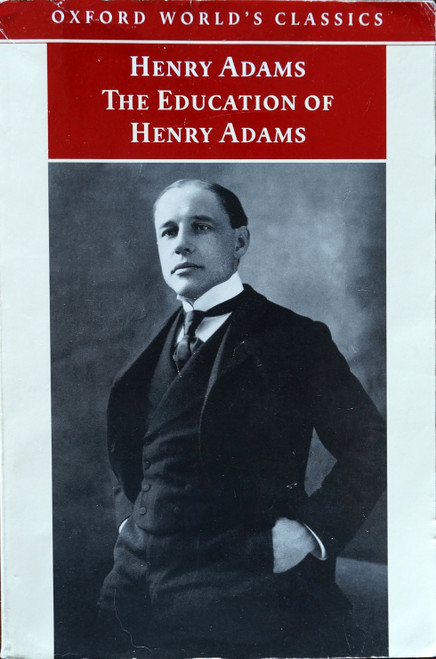Named by The Modern Library as the best non-fiction book of the 20th century, this autobiography plots Adams' own history against that of the U.S. during his lifetime.
As a journalist, historian, and novelist born into a distinguished family that included two past presidents of the United States, Henry Adams was inescapably a part of the American experience. The Education of Henry Adams recounts his own and the country's development from 1838, the year of his birth, to 1905. The Civil War, economic expansion, and the growth of the United States are among its subjects, as well as his own 'dynamic theory of history.' An immediate bestseller, the book was awarded the Pulitzer Prize in 1919. It remains one of the most vital autobiographies ever published and is required reading in many liberal arts degree programs.
The contradictions of America's successes and failures compelled Adams to write the Education, in which he voiced his deep scepticism about mankind's power to control the direction of history. Written with immense wit and irony, reassembling the past while glimpsing the future, Adams' vision expresses what Henry James declared as the 'complex fate' of being an American, and remains one of the most compelling works of American autobiography.
Edited with an Introduction and Notes by Ira B. Nadel
Editorial Reviews
"The pleasure of reading the Education is the pleasure of reading a work of literature made up, literally, from historical facts....It is the pleasure of seeing history come alive, of seeing it move, of seeing behind history to the actions and actors. It is the pleasure of seeing revealed the humanity so often concealed in history." —Alfred Kazin
"It is a book of unique richness, of unforgettable comment and challenging thought, a book delightful, whimsical, deep-thinking, suggestive, a book greatly worth the waiting for....Read the book as a whole." —New York Times Book Review
About the Author
Born in 1838 into the family of John Adams and John Quincy Adams, Henry Adams had the opportunity to pursue a wide-ranging variety of intellectual interests during the course of his life. Functioning both in the world of practical men and affairs (as a journalist and an assistant to his father, Charles Francis Adams), and in the world of ideas (as a prolific writer, the editor of the prestigious North American Review, and a professor of medieval, European, and American history at Harvard), Adams was one of the few men of his era who attempted to understand art, thought, culture, and history as one complex force field of interacting energies.







